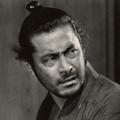Robin Marx reviewed The Punisher by Garth Ennis (MAX comics)
Review of 'The Punisher' on 'Goodreads'
4 stars
I've been a Punisher fan since I was a kid, but I wasn't reading much in the way of mainstream comics when the MAX series was being published. I'm glad I got around to checking MAX out, however, as it (or at least this volume) is the purest Punisher I've ever read.
Although he was introduced in an issue of the Amazing Spider-Man, the Punisher has always occupied a sort of uneasy place in mainstream comics. After losing his family to the Mafia, Vietnam vet Frank Castle takes up his guns and decides to wage a one-man war on crime. It's a similar premise to DC's Batman, but there's always been more of an edge to the Punisher. Unlike most incarnations of the Bat, he has no particular compunction about killing, and he usually works closer to the street, squatting in warehouses and funding his war with money scavenged from …
I've been a Punisher fan since I was a kid, but I wasn't reading much in the way of mainstream comics when the MAX series was being published. I'm glad I got around to checking MAX out, however, as it (or at least this volume) is the purest Punisher I've ever read.
Although he was introduced in an issue of the Amazing Spider-Man, the Punisher has always occupied a sort of uneasy place in mainstream comics. After losing his family to the Mafia, Vietnam vet Frank Castle takes up his guns and decides to wage a one-man war on crime. It's a similar premise to DC's Batman, but there's always been more of an edge to the Punisher. Unlike most incarnations of the Bat, he has no particular compunction about killing, and he usually works closer to the street, squatting in warehouses and funding his war with money scavenged from dead drug dealers rather than living the billionaire playboy lifestyle. Punisher was a Marvel comic, however, so Castle was invariably drawn into tedious, goofy conflicts with super heroes and villains, and censorship (both imposed and self-) kept the series from becoming too dark and violent.
Here, under Marvel's adult-oriented MAX imprint, Garth Ennis succeeds in portraying the Punisher in a way only coyly hinted at in previous comics. Frank Castle is a singularity of hate, a broken machine driven to kill mobsters and thugs. He has no friends, no social life, no secret identity, no James Bond gadgets. There are no costumed heroes and villains. He's trapped in an ugly, brutal never-ending war, with his own violent death as the only possible conclusion.
This volume centers upon a reunion with Microchip, a computer hacker and Castle's one-time ally. In earlier comics, Microchip used to act sort of like James Bond's Q, providing a variety of plausibility-stretching tools for the Punisher. In this story, however, Micro is clearly alienated from his former friend, pushed away by Castle's relentlessness and borderline psychosis. In his interactions with Castle he repeatedly attempts to analyze the reasons for why Castle acts as he does, attempting to push him into a more socially-acceptable path, hunting terrorists for the CIA rather than snuffing Mafia enforcers and pimps. This sounds exciting. It sounds healthier. But Ennis takes the story in the direction truest to the character. Castle vehemently rejects the attempt to put him on a leash, and denies Micro's pat psychoanalysis; Frank Castle is a machine powered by smoldering rage, he's not yearning to break free from a dysfunctional feedback loop.
Some reviewers dislike the explicit language and the graphic violence in the MAX series, but I felt it was appropriate. It's true that these elements were minimized in previous Punisher series. However, that always rang false with me, just as his encounters with other residents of the Marvel Universe seemed unconvincing. It's a comic about an ugly, hate-filled character in an ugly, hate-filled world. Why try to sanitize it?
This was an excellent start to the series. I look forward to subsequent volumes.


